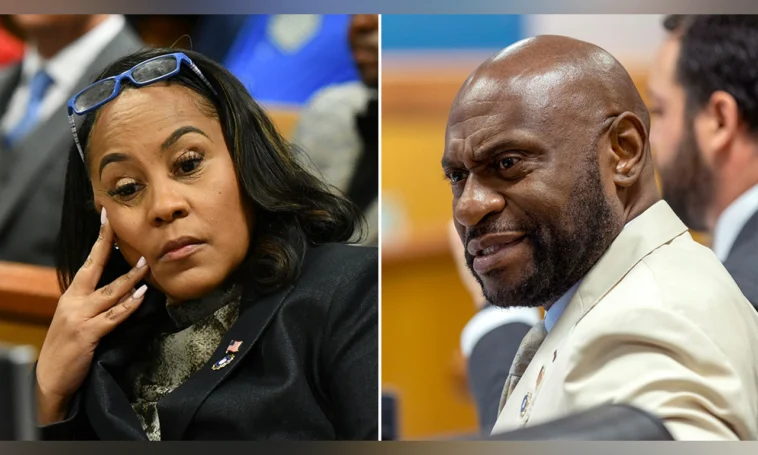Judge orders unsealing of divorce case involving Georgia special prosecutor accused of having an affair. A recent court decision has brought to light details of the divorce proceedings involving special prosecutor Nathan Wade, who is overseeing the Georgia election interference case against former President Donald Trump.
Cobb County Superior Court Judge Henry Thompson made a significant ruling, deciding to unseal the records of Wade’s divorce, following a motion by attorney Ashleigh Merchant representing former Trump campaign staffer Michael Roman.
The judge’s decision to unseal the divorce records signals a shift in the legal landscape surrounding the high-profile election interference case.
Thompson emphasized the importance of adhering to proper legal procedures during the proceedings, stating, “I find that the prior order, although it was by consent parties, was not properly entered because uniform superior court rules require a hearing to be had.”
The judge pointed out the absence of evidence supporting the required hearing, leading to the overturning of the consent order to seal the records.
During these legal proceedings, Judge Thompson also addressed Cinque Axam, the attorney representing Fulton County District Attorney Fani Willis. The decision on whether Willis will be deposed has been temporarily postponed.
Originally scheduled for Tuesday, the delay is pending an evidentiary hearing in the divorce case set for January 31. The judge stressed the need to hear directly from Nathan Wade regarding allegations of an extramarital affair before deciding on the deposition of Fani Willis.
Thompson elaborated, stating, “It seems to me that Mr. Wade would be the first and best source of information on what his income has been and how he’s been spending it. And that he would have firsthand knowledge of whether he’s engaged in an extramarital affair.”
The judge emphasized the significance of Wade’s testimony in assessing his knowledge before determining the unique insights that Fani Willis might provide during her deposition.
The decision to delay Willis’s deposition follows a motion filed last week by the defense attorney in the election case, alleging that Willis was romantically involved with attorney Nathan Wade.
The court opted for a cautious approach, indicating that a stay would be issued on Willis’s deposition until a more informed decision could be made after the evidentiary hearing scheduled for January 31.
This recent legal development sheds light on the intricacies of the ongoing election interference case against Donald Trump. The decision to unseal Nathan Wade’s divorce records underscores the court’s commitment to transparency and proper legal procedures.
It also highlights the importance of gathering comprehensive information before making decisions related to depositions and testimony in a case of such significance.
The unfolding legal proceedings provide a glimpse into the complexities involved in high-profile cases, especially when key individuals, such as special prosecutors and district attorneys, are subject to scrutiny.
The court’s meticulous approach aims to ensure a fair and thorough examination of the facts surrounding the election interference case, acknowledging the broader implications and public interest in the outcome.
As the legal proceedings continue, further developments in the case are anticipated, and the court’s decisions will play a crucial role in shaping the trajectory of this significant and closely watched legal battle.
The scrutiny surrounding the alleged extramarital affair and its potential impact on the election interference case adds an additional layer of complexity to an already intricate legal landscape.




Join the Community and Be a Part of the Conversation
You must be logged in or registered to post a comment.